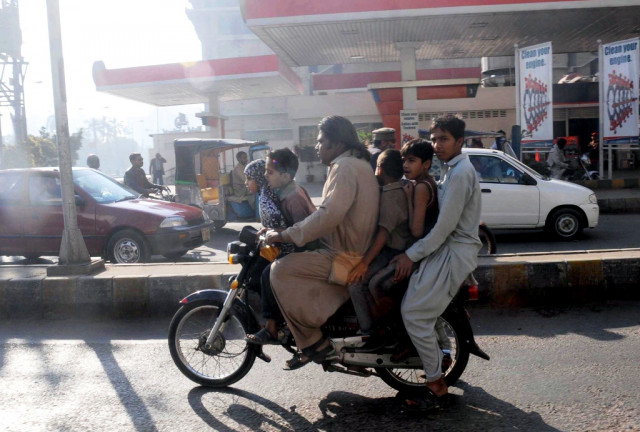It automates monitoring of 19 traffic violations and challan notices are sent directly to vehicle owners.
Rawalpindi has formally introduced and implemented an e-challan system for traffic violations. In just four days, 600 challans were issued for various violations of traffic rules.
According to Rana Abdul Wahab, SSP Safe City Rawalpindi, more than 2,100 cameras located in 360 locations are now being used not only for security surveillance and traffic management but have also been fully integrated with the electronic warning system through the Safe City Command and Control Centre. This initiative, he emphasized, aims to improve the safety of the city’s roads and their users.
The AI-enabled network, equipped with smart cameras, records traffic violations on major roads without exception, and the challan notices are sent directly to the vehicle owners.
Read: Islamabad expands cashless economy and QR code system covers entire city
Giving more information, SSP Safe City Rawalpindi Region, Rana Wahab, accompanied by SP Safe City Razaullah Shah and DSP Safe City Kashif Riaz, spoke at a press conference at the Safe City command and control headquarters in Rawalpindi about the launch of the e-challan system.
He explained that the Command and Control Centre, which already oversees security surveillance, has now been formally linked with the traffic management framework and smart camera-based e-challan mechanism.
Across the cantonment and adjoining areas, more than 2,100 smart and highly sensitive cameras have been installed in relation to more than 300 cases. These allow automated monitoring of 19 categories of traffic violations. In the first four days alone, six hundred e-challans were generated and distributed to the concerned vehicle owners.
Initially, priority is being given to violations that pose the greatest risk to human life, such as riding motorcycles without a helmet, not wearing a seat belt and using mobile phones while driving. However, the e-challan system will be progressively expanded to cover all traffic violations. Wahab claimed that smart cameras now record violations with supporting evidence, based on which challans are issued.
He added that smog monitoring is also being carried out. Forty-one project sites have installed air quality measurement devices, and the Safe City program provides assistance to relevant departments to assess and manage air quality data. Rana Wahab further noted that Safe City projects in all tehsils of Rawalpindi will be fully operational by December 31.
Read also: Aleema briefly placed in judicial custody
Replying to a question, the police officer clarified that surveillance is active not only at the Kachehri Chowk redevelopment project site but also along alternative routes. The system is capable of monitoring nineteen different categories of violations.
Regarding the movement of VIPs, he stated that the law applies to everyone, although the operating parameters for VIPs may differ. He also clarified that challans dating back to August are being issued; However, now no challan prior to November 22 or more than twenty-four hours will be generated. The system works continuously and is capable of detecting all types of violations.
Wahab added that recommendations to improve road infrastructure will also be presented. The traffic police, he stressed, remains the main guardian of traffic regulation. If a citizen is dissatisfied with a challan, he retains the right to appeal to a magistrate.
The general objective, he stated, is to offer better facilities to the public. Panic buttons are also being installed throughout the city.
He also revealed that the Safe City system maintains a database of more than 14,000 registered blood donors. By receiving a call, donors are connected with the patient’s family. Each district has been tasked with registering twenty-five new donors each day.




